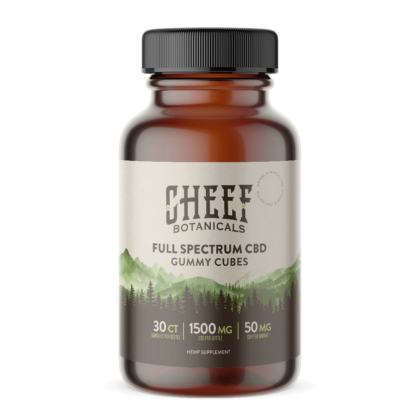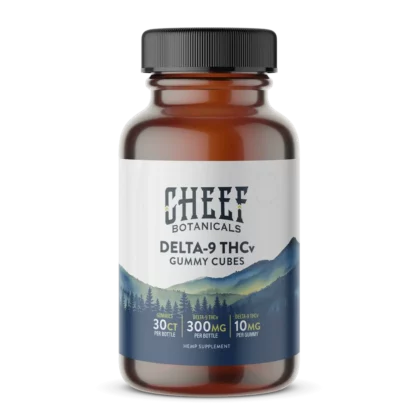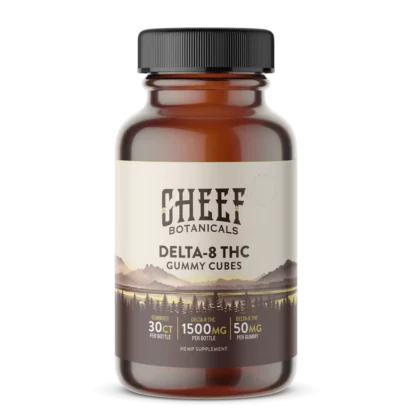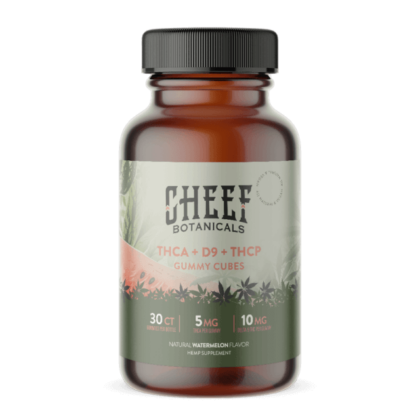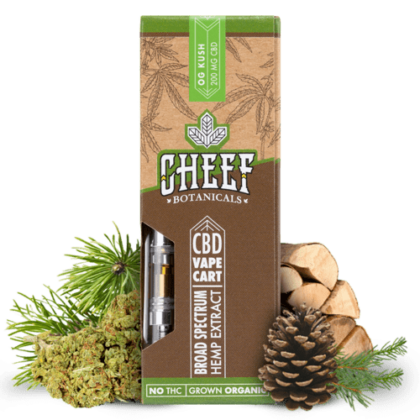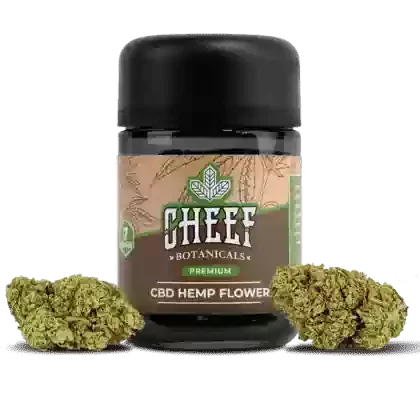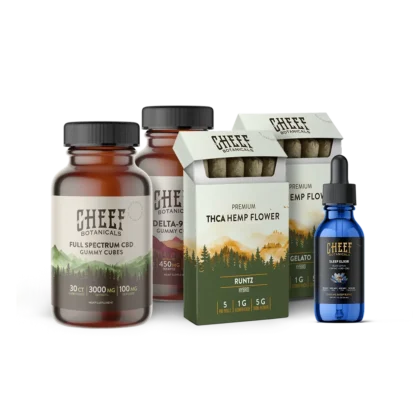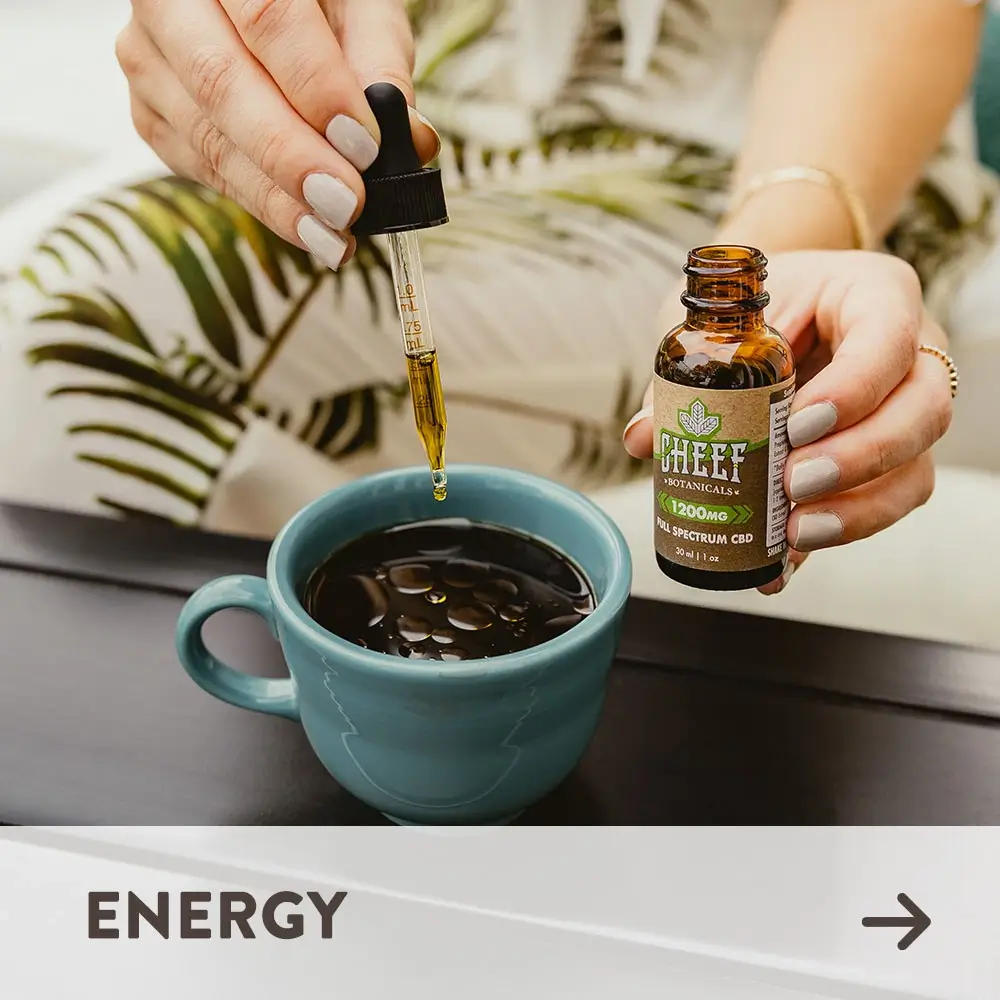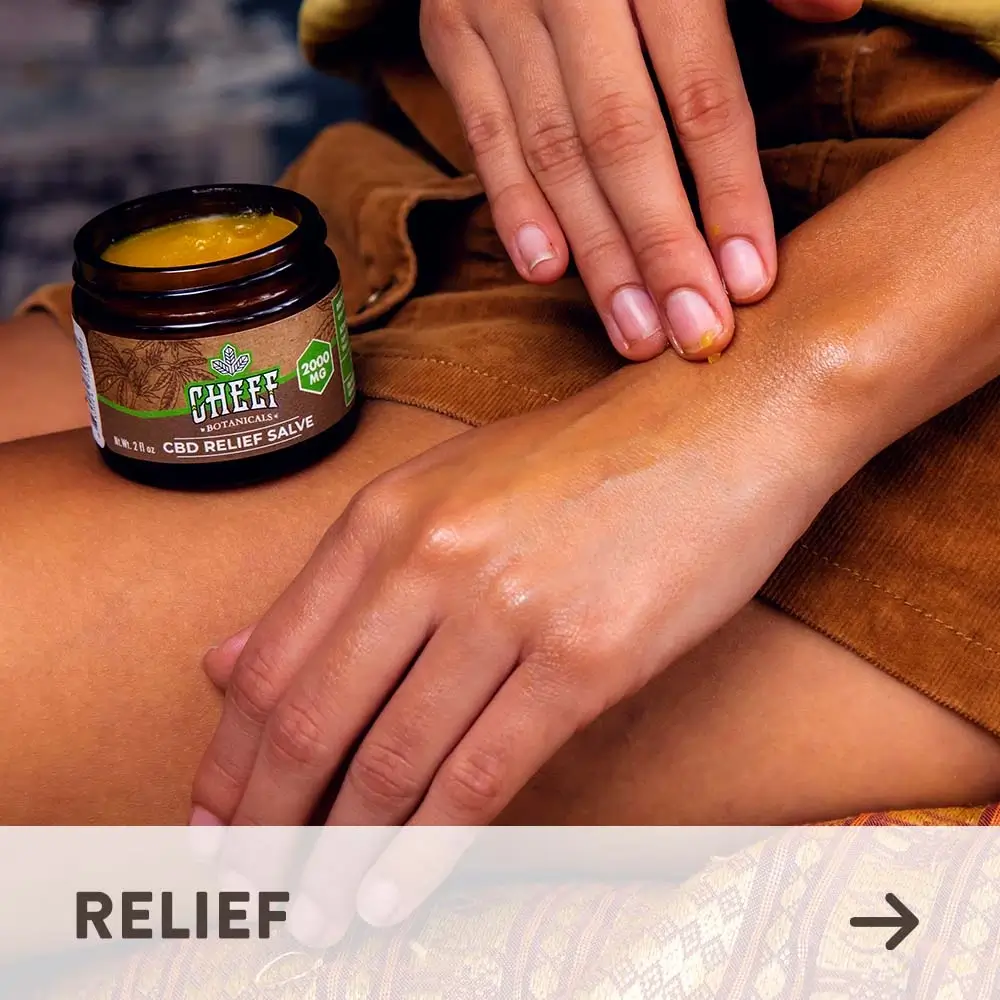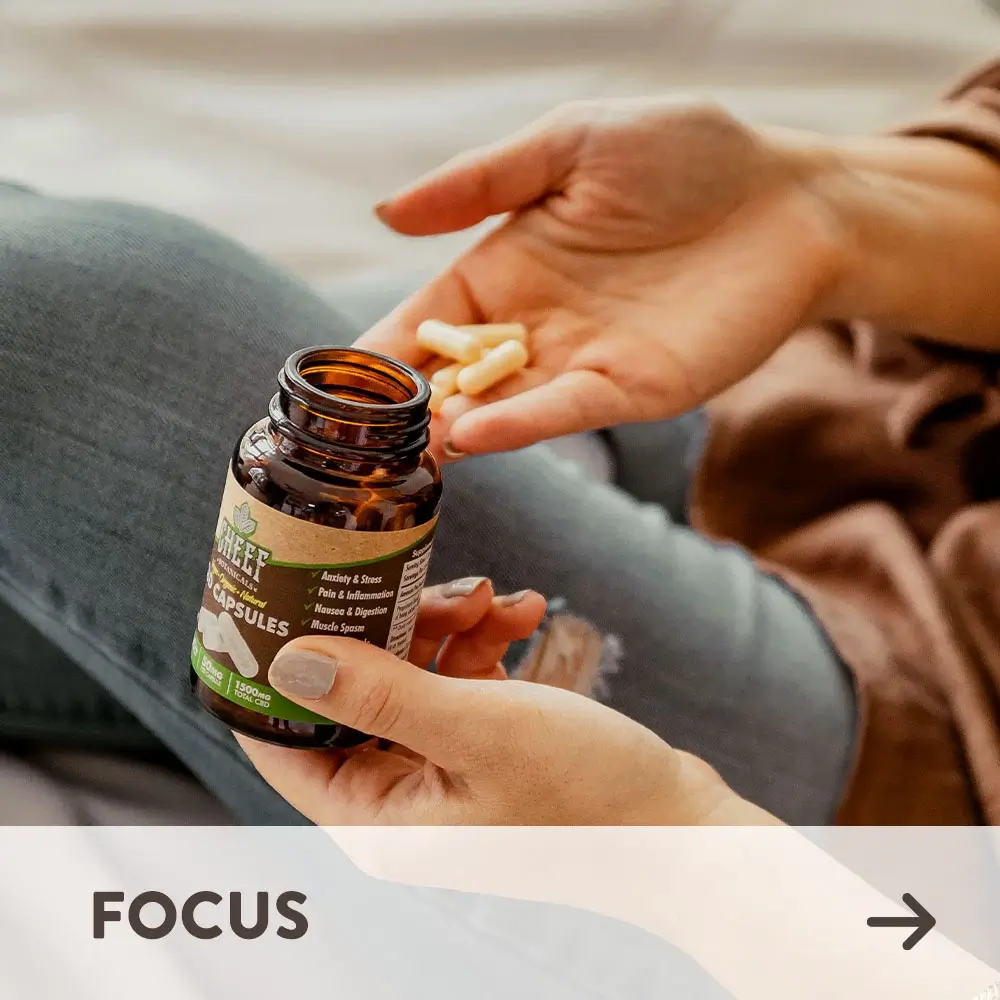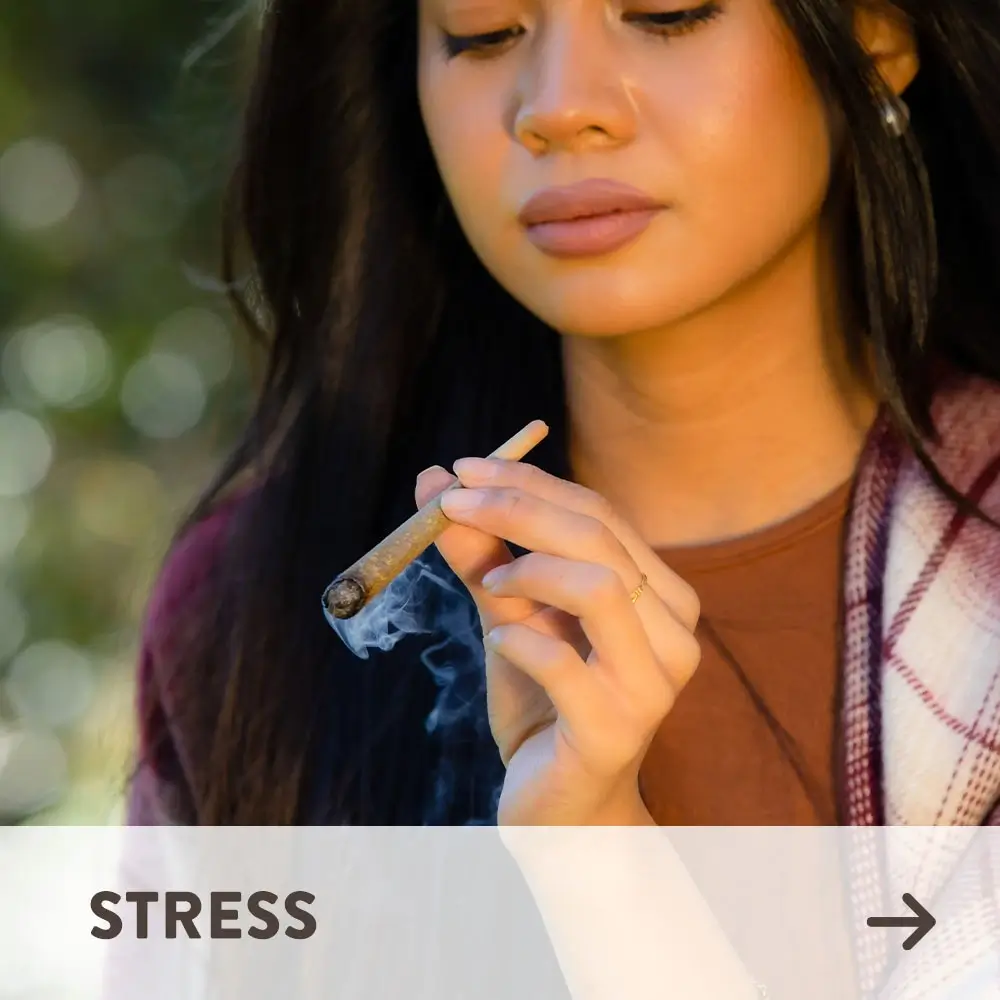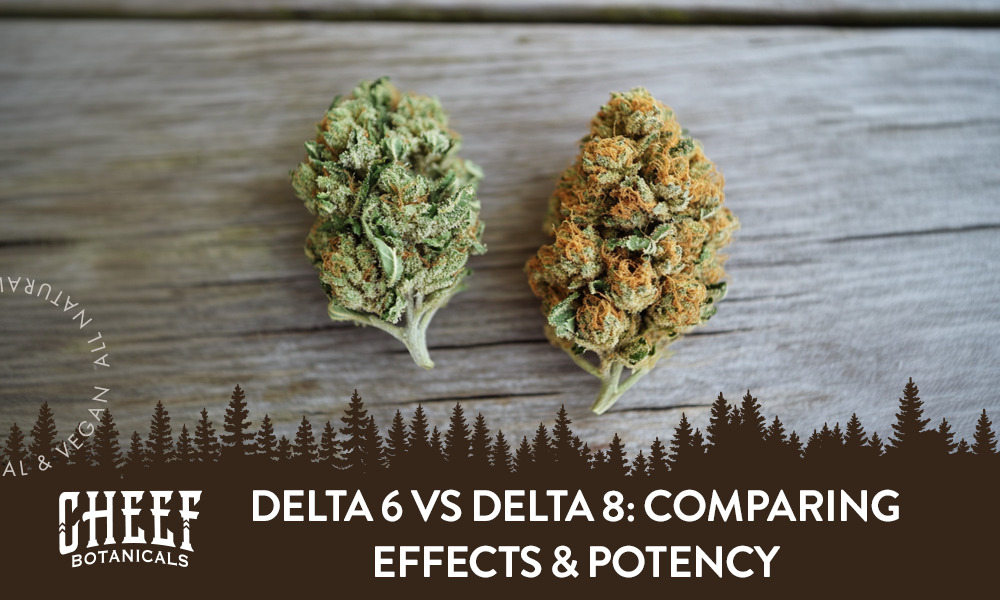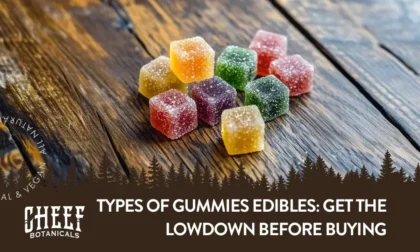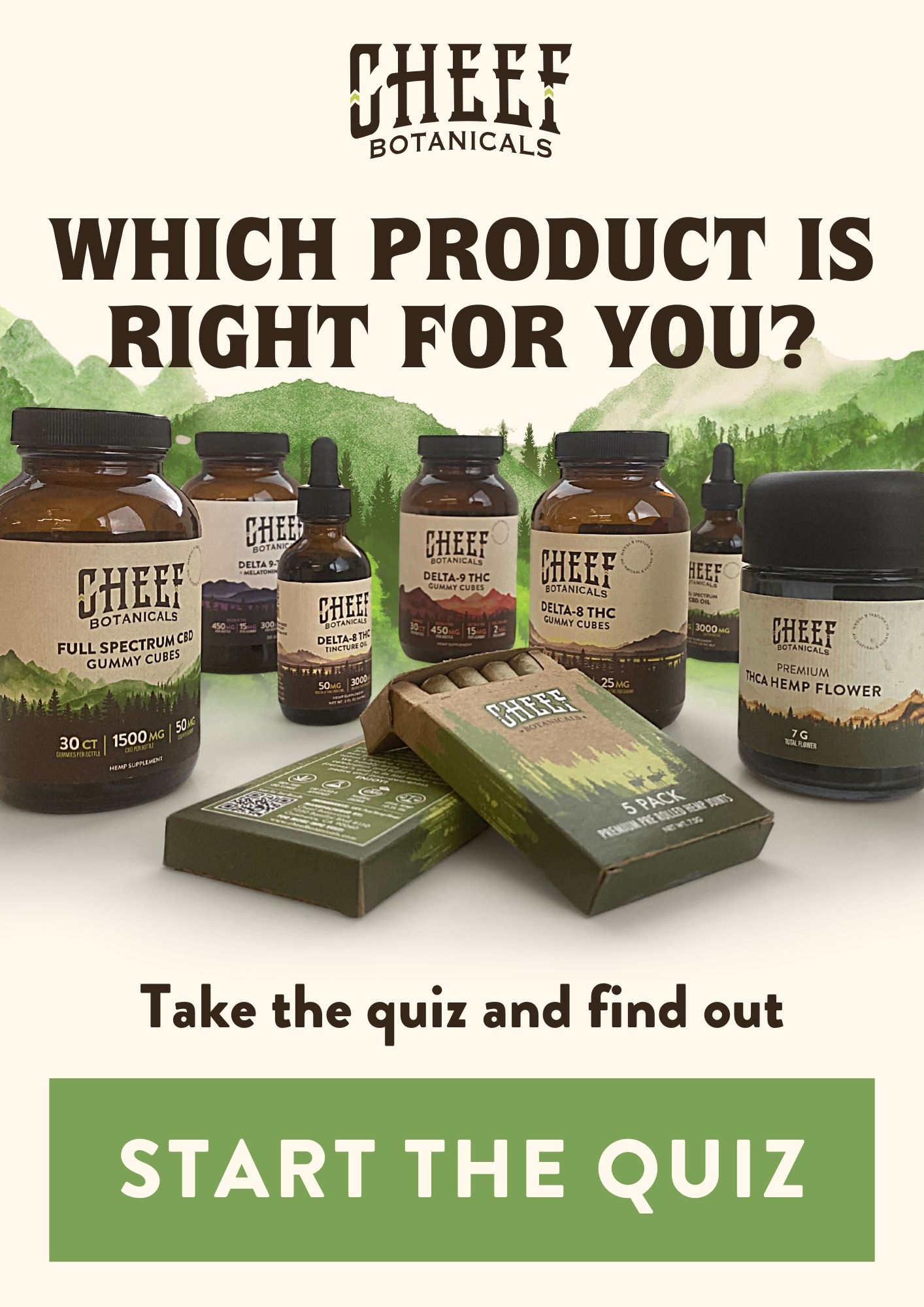With all the buzz around new hemp-derived cannabinoids, you might wonder what sets Delta 6 vs Delta 8 apart. Retailers are constantly adding fresh THC options to meet the rising demand, and products like Delta 9 have inspired a range of new delta variants, each promising unique effects and experiences.
Over the past few years, Delta 6 and Delta 8 THC have both gained attention, but understanding their differences is important if you’re interested in trying one or both. So, which one takes the top spot for potency, and what unique effects do they each provide?
In this guide, we’ll break down the essential details of Delta 6 and Delta 8, helping you see which might be the best match for your next cannabis session.
What Are Delta 6 and Delta 8?
Delta 6 and Delta 8 are both cannabinoids found in the cannabis plant, offering unique effects and potential therapeutic benefits. While they share similarities in their chemical structure, they differ in how they interact with the body’s endocannabinoid system (ECS). Let’s review each in more detail to see what sets them apart.
Overview of Delta 6 THC
Delta 6 (Δ6-THC) is a newer and lesser-known THC variant than Delta 8. Delta 6 is often described as offering a balanced, much milder experience than Delta 9 THC.
Interest in Delta 6 THC is beginning to grow as people explore its unique benefits, like mild relaxation and heightened sensory perception. Although research is still ongoing, some consumers pursue Delta 6 as a niche option for exploring rare cannabinoids. However, as with all hemp-derived products, it’s important to be aware of its legal status, as laws differ from state to state.
Overview of Delta 8 THC
Delta 8 THC (Δ8-THC) has become popular in hemp-derived products, especially for those wanting a moderate experience compared to Delta 9 THC. With a chemical structure close to Delta 9, Delta 8 still produces psychoactive effects, but it’s but they’re often described as smoother and more clear-headed. This has made Delta 8 a top choice for those who want a recreational effect without the intense head change.
Delta 8 is also notable for its legal status under the Farm Bill, which has made it more available in places where traditional THC is restricted. Beyond recreational use, many consumers explore Delta 8 THC for benefits like relaxation and appetite stimulation. As the demand for hemp-derived products grows, Delta 8 continues to stand out as a key option in the cannabis industry.
How Delta 6 and Delta 8 Are Derived?
Delta 6 and Delta 8 THC are both sourced from the cannabis plant, but due to their low natural concentrations, they are often synthesized or refined from other cannabinoids. Both processes result in cannabinoids that are chemically identical to their natural counterparts but more practical for large-scale production.
Delta 6 THC Derivation
As a minor cannabinoid, Delta 6 THC is found in trace amounts in cannabis plants. Due to its scarcity, extracting it directly from the plant is inefficient and costly. Instead, it is typically synthesized in a lab by chemically altering other cannabinoids, such as CBD or Delta 9 THC.
This process involves isomerization, where the chemical structure of a molecule is rearranged to create Delta 6. Hemp-derived CBD is often the starting material to comply with federal legal guidelines under the 2018 Farm Bill.
Delta 8 THC Derivation
Delta 8 THC also occurs naturally in very small amounts in cannabis, so it is usually produced through a similar isomerization process as Delta 6. Hemp-derived CBD is commonly used as the base compound, which is converted into Delta 8 THC using acids and solvents under controlled lab conditions. This makes Delta 8 widely available and federally legal when derived from hemp with less than 0.3% Delta 9 THC.

Key Differences Between Delta 6 vs Delta 8
Delta 6 and Delta 8 THC may look similar at first, but each brings its unique effects and vibe. From their chemical structure to their impact on the body, these two THC variants offer distinct experiences, appealing to different consumers.
Chemical Structure and Psychoactive Effects: Delta 6 vs Delta 8
Delta 6 and Delta 8’s different atomic arrangements affect how each cannabinoid interacts with the body’s ECS, particularly the CB1 and CB2 receptors. Even small changes in structure, like the position of a double bond in their carbon chains, can influence their potency, psychoactive effects, and duration.
In Delta 6 THC, the double bond is located in a different position on the molecule compared to Delta 8 THC. This subtle structural variation results in Delta 6 producing milder psychoactive effects, while Delta 8 offers a slightly stronger, more noticeable “high.” These differences make Delta 8 more popular for recreational and therapeutic use, while Delta 6 remains less common and is considered even less intense.
Potency and Duration of Effects
Delta 8 THC has a moderate potency, giving noticeable effects that typically last 2-4 hours, depending on the size of the dose and consumption method. It provides a smooth sense of relaxation and mild euphoria that’s strong enough to enjoy without overwhelming.
Delta 6 THC might be a bit less potent and may not last as long because of differences in how it interacts with receptors. While Delta 8 has a stronger presence, Delta 6 offers a softer experience that may feel easier to manage. Both are less intense than Delta 9 THC, making them great options for those wanting a milder effect.
Potential Benefits of Delta 6 Compared to Delta 8
Delta 6 and Delta 8 THC each come with unique potential benefits beyond their psychoactive effects. Delta 8 is known for promoting relaxation, making it a popular choice for those looking to unwind without feeling overly tired. It also may boost appetite, which can help those wanting a natural way to encourage eating.
Delta 6, though less researched, may offer similar relaxing benefits but with a gentler touch. For those new to THC, Delta 6 could provide a soft introduction without the stronger effects of Delta 8. Both engage with CB1 and CB2 receptors, impacting mood and appetite, making them versatile options in the world of hemp-derived products.
How Delta 6 and Delta 8 Interact with the Body
Delta 6 and Delta 8 THC interact with the body through the endocannabinoid system, which helps maintain balance in many bodily functions. This system includes cannabinoid receptors, mainly CB1 and CB2, which are found throughout the brain, immune system, and other areas. When Delta 6 and Delta 8 bind to these receptors, they can influence mood, appetite, and sensory perception.
Found mainly in the brain and central nervous system, CB1 receptors contribute to the psychoactive effects that cannabinoids produce. Delta 8, for example, binds to CB1 receptors but delivers a milder experience. Located within the immune system, CB2 receptors may assist the body in managing discomfort and stress. The interaction with CB1 and CB2 receptors gives each cannabinoid unique effects, explaining why Delta 6 and Delta 8 produce different experiences and benefits for users.
Uses and Applications of Delta 6 vs Delta 8
Delta 6 and Delta 8 THC serve unique purposes and are available in a variety of products to suit different needs. Whether for relaxation or wellness, these cannabinoids come in forms that suit various preferences.
Recreational Use and Experience
Delta 6 and Delta 8 THC are popular for recreational use, offering mild effects without the strength of traditional THC. Delta 8 is commonly found in vapes, gummies, and tinctures, providing a relaxed, mellow experience that many enjoy for unwinding.
Delta 6, known for its lighter impact, is also available in vapes and edibles, giving a gentle lift without a strong psychoactive effect. Both work with the endocannabinoid system’s receptors, making them approachable options for those trying out THC. With options like these, Delta 6 and Delta 8 offer an enjoyable experience in various easy-to-use forms.
Therapeutic and Wellness Applications
Delta 6 and Delta 8 THC are also used for wellness and relief. Delta 8 is often available in capsules, tinctures, and topicals. It is known for mild discomfort relief and potential anti-inflammatory properties. These products may help with soreness or muscle tension, offering a natural boost to well-being.
Delta 6, while less common, is available in similar forms and may offer gentle wellness support. Both cannabinoids work with the endocannabinoid system, making them versatile options for those looking for therapeutic benefits in hemp-derived products.
What Delta 8 Options Do We Offer?
Our Delta 8 edibles deliver a precise amount of hemp-derived Delta 8 THC, giving you a consistent, uplifting experience every time. Made with all-natural, cruelty-free ingredients, these gummies offer a blend of quality and flavor, perfect for both wellness and enjoyment.
- Delta 8 Gummy Cubes. These classic gummies are infused with pure Delta 8 THC, offering a balanced and calming effect. Perfect for relaxing or taking a moment for yourself. Select different potencies and choose between our sour, tropical, and mixed berry flavors.
- Delta 8 Tincture. We offer liquid drops infused with different concentrations of Delta 8 THC. Tinctures are perfect for direct-to-mouth consumption or try adding some to your favorite beverage.
Comparing Delta 9 with Delta 6 and Delta 8
Delta 9, Delta 6, and Delta 8 THC each offer something different despite sharing a similar chemical formula. Small changes in their molecular structure impact how they work in the body, creating unique experiences for each. Here’s a quick look at how they differ:
- Delta 9 THC is popular for its strong psychoactive effects, giving that classic, intense THC experience many are familiar with.
- Delta 8 THC provides a smoother, more relaxed high, making it popular for those seeking something gentler than Delta 9.
- Delta 6 THC is even milder than Delta 8, with a balanced and subtle effect.
These differences make Delta 8 and Delta 6 appealing for their calming properties, while Delta 9 remains the go-to for a more powerful effect.
Where to Find Delta 6 Products
To find quality Delta 6 THC, start by choosing reliable sources like trusted online brands or local dispensaries. Reputable sellers offer lab-tested, hemp-derived products with clear information on ingredients, potency, and third-party testing. This transparency ensures you’re getting pure Delta 6 without unwanted additives.
Remember to consider legal factors when buying Delta 6. Under the Controlled Substances Act, hemp-derived THC with less than 0.3% Delta 9 THC is federally legal, but state laws can differ. Always check your local laws to confirm Delta 6 is allowed where you live.
Good dispensaries and online brands stay up-to-date on these regulations, selling products legally. For a safe purchase, choose sellers who prioritize quality and follow the latest hemp laws.
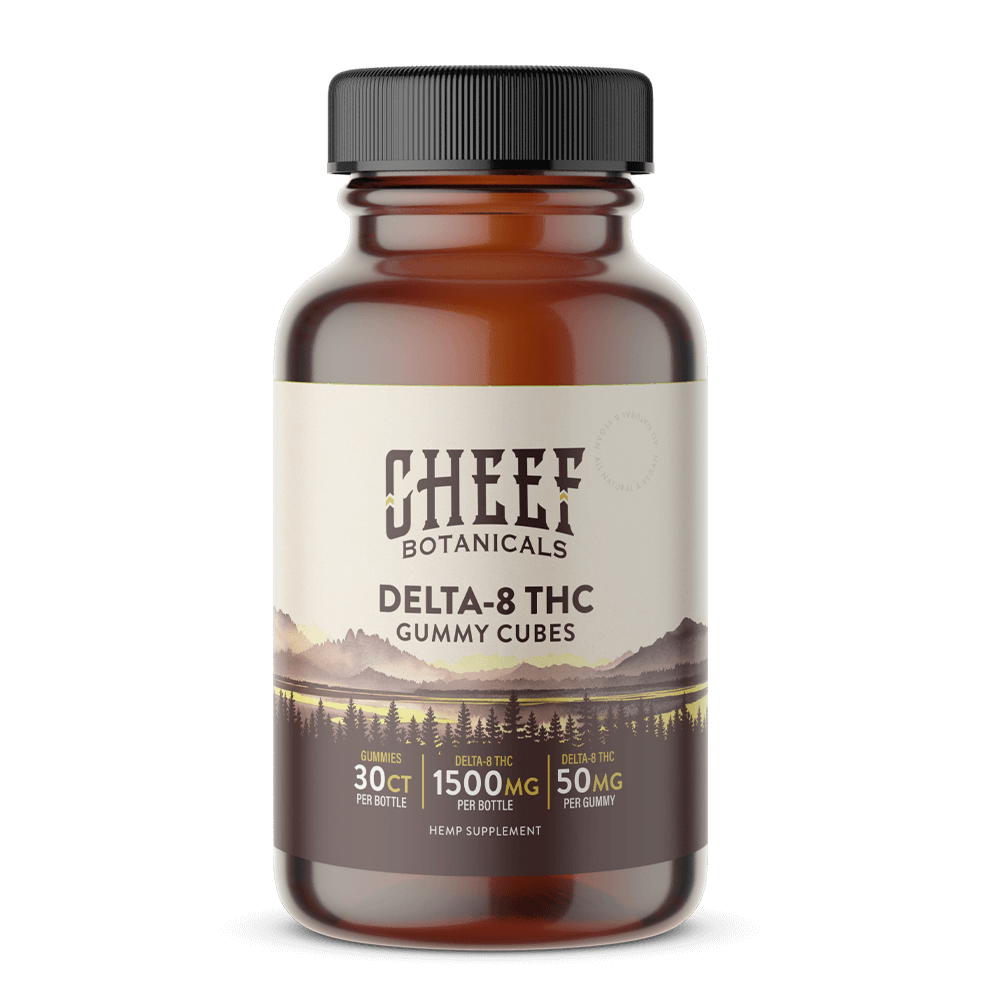
What to Look for: Buying Delta 8 or Delta 6
When buying Delta 8 or Delta 6, choose brands that are clear about their ingredients and testing. Look for products that mention therapeutic properties and show the source of their hemp-derived cannabinoids. A reliable brand will help ensure you’re getting safe, quality Delta 8 or Delta 6 with effects you can trust.
Identifying Quality Delta 6 and Delta 8 Products
To spot quality Delta 6 and Delta 8, look for brands that are open about their ingredients and processes. Good products should label potency, list other cannabinoids, and possibly note therapeutic properties. Third-party lab testing is a must to confirm purity and ensure no contaminants. Choose brands that focus on quality and transparency so you know exactly what you’re buying.
Importance of Lab Testing and Purity
Lab testing is key to making sure Delta 6 and Delta 8 products are safe. Reliable brands will offer third-party lab reports to verify the cannabinoid content and show that products are free from harmful substances. These reports check for contaminants like pesticides and solvents, ensuring a clean product. Always pick products with current lab results to feel confident about their safety and purity.
Product Forms and Potency Options
Delta 6 and Delta 8 come in forms like gummies, tinctures, vapes, and capsules, each with its benefits. Vapes and tinctures act faster, while gummies and capsules provide longer-lasting effects. Potency varies, so if you’re new, start with a lower dose to see how it feels. More experienced consumers may prefer higher-potency options for a stronger effect. Having different forms and potencies lets you find what works best for you.
Frequently Asked Questions About Delta 6 vs Delta 8
Are Delta 6 and Delta 8 Legal?
As long as Delta 6 and Delta 8 THC come from hemp and stay below 0.3% Delta 9 THC, they are federally allowed. However, due to the Controlled Substance Act, some states have restrictions on these THC variants. It’s important to check the legal status of Delta 6 and Delta 8 in your area to ensure compliance with state regulations.
Can Delta 6 or Delta 8 Show Up on Drug Tests?
Yes, both Delta 6 and Delta 8 THC can show up on drug tests. Standard drug testing often detects THC metabolites, which are present in both Delta 6 and Delta 8, similar to traditional THC. If you are required to undergo drug testing, using Delta 6 or Delta 8 may lead to a positive result.
Delta 6 and Delta 8 vs. CBD
Delta 6 and Delta 8 THC differ from CBD, as they have psychoactive effects while CBD does not. These other hemp-derived cannabinoids interact with the body’s endocannabinoid system to create mild euphoria, unlike the calming effects of CBD. People often choose CBD for wellness without psychoactive effects, while Delta 6 and Delta 8 are popular for those seeking a gentler, enjoyable high.
Which is Stronger: Delta 8 vs. Delta 6
Delta 8 THC is typically stronger than Delta 6 THC, providing a more noticeable and relaxing high. Delta 6 offers a milder experience, ideal for those who want gentle therapeutic properties with fewer psychoactive effects. For a stronger effect, Delta 8 tends to be the preferred choice among other cannabinoids, while Delta 6 suits those looking for a balanced, subtle experience.
 FREE Shipping on orders $80+
FREE Shipping on orders $80+
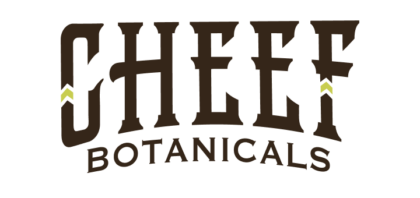
 Sale
Sale 